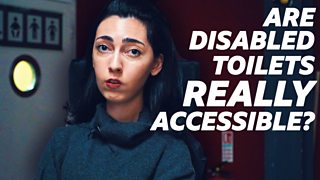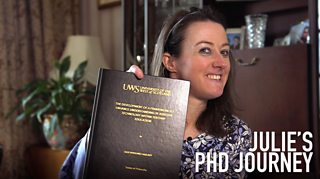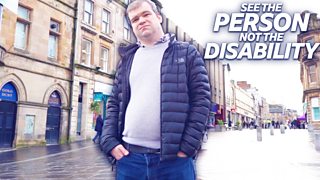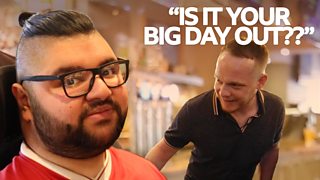Flexible working is essential for people with disabilities - but why has it taken a pandemic to get there?
By Kiana Kalantar-Hormozi // BBC The Social Contributor // 05 October 2020
I remember being young, fresh out of uni, and ambitious to get my foot in the door of the best independent media companies in Glasgow.
And I still feel young, have graduated three times in four years; but my dream of ever working my way up the media hierarchy has been smacked against many stone-cold staired-entrances of the very best independent media companies in this city.

No amount of negotiating over the phone, suggesting workplace adjustments and polite conjectures ever got past the systematic discrimination I faced trying to get into the media industry.
I feel a range of emotions in response to this shift in attitude – why have we only adopted this flexibility now?
The offices are almost always in inaccessible venues and they almost always want the editor or production assistant to be able to drive, or hold a camera and shoot – which are the only two things I can’t physically do in this industry.
I remember calling a brilliant indie media company in Glasgow to ask about a production assistance opportunity they had.
When my conversation got to the point of “so do you have wheelchair access?” the answer was “oh no, we don’t, obviously we wouldn’t want anyone to miss out on an opportunity because of lack of access but our office is completely inaccessible.
Send over your application anyway.” And I did send over an application with an offer to work flexibly from home, but never received a reply.
Another brilliant indie media company in Glasgow had a vacancy open for a junior editor position – and my phone call to them revealed that they too were set up in completely inaccessible premises – though they seemed far less apologetic about it. I did not waste my time sending in an application.
But now Covid has smacked against society’s way of functioning – with Covid, all the big and small media companies that used to say “you have to be in the office” to edit, do production assistance or come up with content ideas, are now saying “work from home as much as you can”.
I feel a range of emotions in response to this shift in attitude – why have we only adopted this flexibility now? Will we go back to the way things were when Covid is over and flexibility once again becomes important for a small portion of the population? It’s clear that double standards exist in society: if we are all affected by something like Covid, then working from home is acceptable; if a smaller cross-section of people are affected by society’s systemised inaccessibility, then no one cares.
I am scared that working from home will become the default easy option for companies to appear “inclusive” when they’re actually benefitting from diverse skills yet managing to exclude and isolate.
And the other part of it is, in normal circumstances, I don’t actually want to work from home – I want buildings to be accessible, or I want technology [like a stair climbing wheelchair] to be able to access buildings.
We are still not being inclusive if we tell disabled people “yeah, you can have this job as long as you stay isolated in your own space because we can’t accommodate you”. And accommodating me means not only having an accessible and inclusive office [with no stairs or steps] but also having a Changing Places toilet.
I am scared that working from home will become the default easy option for companies to appear “inclusive” when they’re actually benefitting from diverse skills yet managing to exclude and isolate. I don’t want working from home to be the default for me, I’d take it as the second worst option to being unemployed and having no way to work my way up the ladder to eventually having my own media conglomerate with a beautiful accessible universal design building [I still got my dreams].
Ultimately, Covid has disrupted everything and caused serious challenges to our modern day lives, including mine. But it’s also shown me that every issue I’ve faced in my life [health, isolation, exclusion from education, the list could go on] are all taken seriously when the person in question is not disabled or does not have a long term health condition.
We are beginning to talk about these issues but using words like “vulnerable”, “suffering” and “burdened” just remould the discriminatory views that disabled people are not capable of living a full life, or contributing fully in a workplace.
We may eventually stumble towards a more inclusive “normal” that celebrates diversity in the workplace and removes systematic barriers, with flexible and home working options being part of the solution. No matter how privileged or underprivileged we are, we all can’t wait for this pandemic to be over.
P.S. I just took a second to scroll through my Facebook feed and guess what – indie media companies still want every editor they hire to be able to shoot – “Primarily the role will focus on editing, however the ideal candidate will have a sound, working knowledge of camera work, and the ability to add a creative spin to a corporate shoot.”
Anyone have £100 000 I can spill on a fully motion controlled camera system? Because when I said I can’t drive or shoot – it’s not entirely true, I just need a hell of a lot of money to make driving and shooting accessible.




